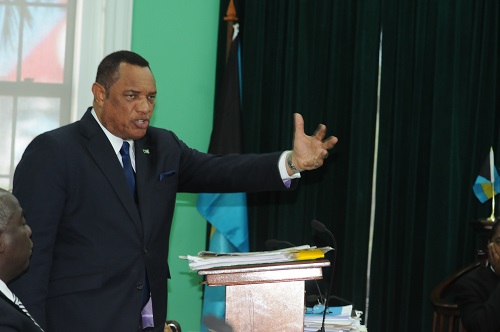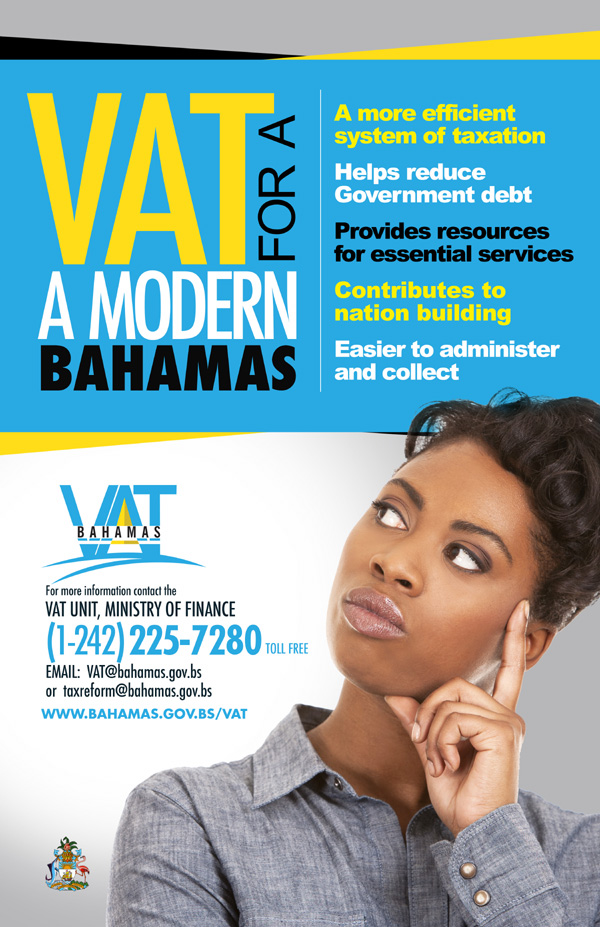Christie Delivers….! bringing equality in the law for all when it comes to Gaming…

REMARKS BY
RT. HON. PERRY G. CHRISTIE
AND MEMBER OF PARLIAMENT
FOR THE CENTREVILLE CONSTITUENCY
ON NEW COMPREHENSIVE GAMING LEGISLATION
SEPTEMBER 15, 2014
Nassau Bahamas
Mr. Speaker,
It gives me great pleasure to address Parliament on the Gaming Bill, 2014, Gaming Regulations, 2014, Gaming House Operator Regulations, 2014, Financial Transactions Reporting (Amendment) Bill, 2014, Financial Transactions (Gaming Exemptions) Regulations, 2014, and the Proceeds of Crime (Amendment) Bill, 2014, which signal the dawn of a new era in the licensing and regulation of gaming in The Bahamas.
This promises to be an era in which, with the necessary commitment and hard work, The Bahamas establishes itself as a cutting-edge and thoroughly modern gaming jurisdiction, operating in accordance with international standards of best practice, underpinned by robust legislation and careful and comprehensive regulation.
The newly tabled legislation is the product of many months of unstinting effort, careful consideration and focused dialogue with stakeholders, regulators, relevant local and international authorities, social, religious and other relevant parties. Throughout this process, the overriding objective of my Government has been to modernise the licensing and regulatory dispensation in relation to gaming in The Bahamas, ensuring its vibrancy, attractiveness and competitiveness in an increasingly demanding global market, and thereby enhancing its capacity to generate revenue and to stimulate the growth of the economy.
The objective of the Government has also been to ensure that The Bahamas as a gaming jurisdiction would engender public confidence in the integrity of the operations authorised by gaming-related licences, through the enactment of world-class legislation incorporating all the detailed controls needed to ensure fair play, compliance with prevailing international standards and the insulation of the industry from criminal and corruptive elements. We are proud to say that the legislative instruments tabled indeed comply with all these critical requirements and more.
Mr. Speaker,
As part of the Government’s agenda in developing this legislation has been its commitment towards the goal of achieving a careful and sustainable balance between a range of well-documented, competing views in relation to gaming in The Bahamas. This has required mature reflection and frank discourse regarding the forms of gaming which have taken root in the domestic market in The Bahamas over the years, and the manifold implications of permitting these to continue in an unregulated environment. In this regard, the Government must remain acutely alive to its international obligations, to which I will refer in greater detail later, as well as the preservation of its standing as a well-respected, globally responsible and compliant jurisdiction.
Accordingly, the emphasis has fallen squarely on striving to carve out a path which will best serve the interests of The Bahamas and its people. These interests are incontestably served by the enactment of legislation which creates a predictable, law-abiding and socially responsible environment for the conduct of all forms of gaming in The Bahamas, while at the same time harnessing the enormous strides which have been made in technology to enable operators in The Bahamas to offer widely sought-after, cutting edge products that are poised to transform The Bahamas into a leading gaming jurisdiction on the global stage. This is set to enhance the revenue-generation potential of the gaming industry and to act as a springboard for vital economic growth in our country.
The interests of The Bahamas and its people are likewise served by ensuring that our gaming legislation withstands even the most rigorous scrutiny, by incorporating all the internationally-mandated controls required to insulate it from money-laundering and terrorist-related activities.
Mr. Speaker,
I am confident that the gaming legislation tabled in Parliament comfortably meets, and in some respects even surpasses, all of these demanding criteria. No effort has been spared to ensure that this is indeed the case. The Gaming Bill itself encapsulates all of the key policy positions adopted by the Government in relation to the licensing and regulation of gaming in The Bahamas.
Its purpose is to put in place a solid and predictable legal framework for the comprehensive, modern, transparent licensing and regulation of all gaming sectors in The Bahamas in a manner which protects the integrity of the industry and engenders public trust.
The most fundamental cornerstone of any credible gaming dispensation anywhere in the world can be distilled into a single word. That word is “probity”. Probity focuses on establishing that any given person who seeks to be involved in the gaming industry, whether as a regulator or as a licence holder, is fit and proper to do so, and moreover remains fit and proper on an ongoing basis. The currency of probity is therefore information concerning the relevant individual, ranging from information regarding the personal history of that person, or business history, where that person is a corporate entity, to information relating to the financial history, capacity and dealings of that person, as well as criminal history and associations with other persons. As a means of ensuring that prospective participants in the gaming industry can be relied upon to manage their gaming operations in a manner which is fair and honest and complies with the requirements of the law, the Gaming Bill empowers the Gaming Board to conduct comprehensive probity investigations into applicants for licences and certificates of suitability against the qualification criteria set forth in the legislation. The licence application process therefore involves the disclosure of wide-ranging and extremely sensitive personal and financial information about the person applying for the licence. Furthermore, the obligation to disclose this information extends to all persons holding stipulated levels of financial interest in the prospective licence holder, which is generally set at a threshold of five percent.
Mr. Speaker,
It follows that, in the performance of its statutory mandate, the regulator and its staff will become privy to extensive information regarding applicants and licence holders which is both sensitive and proprietary in nature. Accordingly, it is equally important to ensure that the custodians of this information should meet appropriate standards of personal probity, and will respect and maintain the confidentiality of the information at their disposal.
In accordance with these objectives, the Gaming Bill provides for the continuation of the existing Gaming Board for The Bahamas, and sets forth detailed qualification criteria for membership of the Board. Similar criteria are provided for in respect of the personnel of the Board. The purpose of these criteria is to ensure that members of the Gaming Board and its staff comply with the highest possible standards of personal probity and integrity, taking into account the extensive powers which the Bill confers upon them, not only in the context of investigation and licensing, but also in the conduct of their regulatory functions throughout the currency of any licence.
Mr. Speaker,
Once the appropriate assurances have been obtained regarding the probity of industry stakeholders, it is equally important to ensure that the gaming dispensation makes provision for a predictable and stable environment within which licence holders are able to function. The Gaming Bill therefore lists with considerable particularity the powers of the Gaming Board and the Minister responsible for the administration of the gaming portfolio in the context of licensing and the ongoing regulation of the industry. In the context of operator licences, the licensing process has been carefully devised to make provision for the initial conduct of comprehensive probity investigations by the Gaming Board, supplemented by a public participation process, which may include public hearings, and the preparation of a report to be submitted to the Minister. Such a report will set forth the identifying particulars of the applicant, the nature of the licence applied for, the nature of, and the findings made in respect of, any objections or comments submitted in respect of the application, the nature and outcome of any investigation performed, and, where applicable, any hearing conducted, in relation to the application.
The thrust of the report submitted to the Minister by the Gaming Board is required to cover specific critical areas, including –
- whether the funding of the business for which the licence is required is provided by a reputable person, body or institution;
- where applicable, whether the premises to be used for the conduct of the licensed activities are, or will on completion, be suitable for the conduct of gaming activities;
- whether the applicant has, in the application form submitted to the Board, made full and frank disclosure of all matters required therein or otherwise prescribed;
- that the grant of the licence is not against the public interest and is in accordance with the policy and objectives of the Act; and
- that the applicant qualifies for the licence under the Act and is not disqualified for such licence under any of the provisions thereof.
Mr. Speaker,
Prior to submitting a recommendation to the Minister regarding any licence application, the Gaming Board is required formally to raise any concern which it’s investigation may have revealed concerning the issue of whether the applicant qualifies for the relevant licence with the applicant concerned, and to suspend its final consideration of the application until such time as the required information has been procured. In this manner, the application process is rendered as administratively fair and transparent as possible. Similar consultative and transparent measures have been built into the imposition of the conditions to which licences are to be subject.
Moreover, once the Minister has been placed in possession of the report by the Gaming Board, he may similarly request further information regarding any aspect of the application, with a view to satisfying himself as to whether the licence applied for should be granted or refused. In such a case, the Minister may likewise suspend his final consideration of the application pending the receipt of the information required. Once the Minister has reached a decision to grant the application, a further consultative process is held with the applicant regarding the conditions to which the licence should be made subject. These detailed provisions have been specifically crafted to ensure that each application is considered as comprehensively as possible, providing for dual levels of scrutiny, by the Gaming Board, in the first instance, and the Minister, in the second, and moreover to ensure that no decision is taken other than by way of a transparent, legally defensible and administratively fair process. It is my considered view that this mandatory approval process for which the Gaming Bill makes provision in the context of operator licences (as well as a number of certificates of suitability) is among its major strengths, inasmuch as it promotes open, accessible, comprehensive and fair decision-making, supplemented by consultative measures which are peremptory rather than discretionary. Mr. Speaker,
Over and above creating certainty regarding the qualification criteria for licensing, it is also a vital ingredient of a stable gaming jurisdiction that the legislation governing gaming should spell out, with appropriate levels of clarity and precision, the specific conduct authorised under each licence and the operational parameters within which such conduct may be pursued. Put differently, the expectations of the Government regarding the manner in which, and the framework within which, licensed operations are to be conducted should be clearly and specifically articulated in the legislation. Licensed operators must know beyond a shadow of a doubt what is permitted and what is prescribed, so that they may tailor their operations in accordance with these requirements. Second to probity, which is an indispensable precursor to the award of a licence, the next most powerful watchword in the licensed gaming industry is without a doubt: “compliance”.
If compliance with the requirements of the applicable legislation is not secured and maintained throughout the currency of a licence, the licence is jeopardised, and may be suspended or even revoked in its entirety under the Gaming Bill. These are powerful and significant measures with enormous implications for licence holders, not only in the context of their licensed operations in The Bahamas, but indeed from a global perspective. Therefore, it is imperative that the gaming legislation should contain detailed, carefully formulated and unambiguous compliance-related requirements.
The Gaming Bill and the proposed Regulations which have been tabled have been crafted to respond to these requirements in the most comprehensive manner possible. In the first instance, the Gaming Bill sets forth in detail the activities to be authorised under each category of licence for which it provides. In addition, provision has been made for the enactment of Regulations by the Minister and the making of operational Rules by the Gaming Board itself. The Regulations and Rules deal with the nuts and bolts of the day-to-day operation of licensed activities on every level. The approach adopted in the formulation of the Gaming Regulations and the Gaming House Operator Regulations was to identify the key operational areas which would pose risks in the context of ensuring the integrity and legality of licensed operations, and to put in place specific procedural and operational requirements to be adhered to so as to enable the efficient and reliable management of these risks. I would like to focus on one such area, which has been of decisive significance to my Government in its approach to the modernisation of the licensing and regulatory dispensation in The Bahamas.
Mr. Speaker,
With the benefits of modernisation resulting from the recent explosion of technological solutions and the inevitable impact which this has on the array of gaming products which are becoming available, as well as the means by which they can be made available, come unique challenges which must be thoughtfully and comprehensively addressed in the formulation of gaming policy. This is nowhere better illustrated than in the context of gaming made available by means of communications technology, and accessed by means of the Internet. Gaming over the Internet poses a plethora of particular risks. These risks originate in the non-face-to-face nature of the gaming transactions conducted and the borderless nature of the Internet, and the huge scope which these realities leave open for money laundering and activities related to terrorism, as well as potential contraventions of the laws of other countries which prohibit their citizens from engaging in interactive gaming with offshore service providers, whether or not they are licensed. As a result, it must be high on the agenda of every responsible government contemplating the licensing of interactive gaming in any form, to ensure that these pervasive risks have been comprehensively addressed in a manner which complies with the international obligations of that government.
The Government of The Bahamas is no exception, and has, from the outset, been acutely conscious of its responsibility to ensure that the legislation proposed to be enacted in the context of interactive gaming is in compliance with standards of international best practice and will not actually or potentially facilitate any violation of the gaming laws of any other jurisdiction.
Mr. Speaker,
As all Bahamians fully appreciate, The Bahamas is closely integrated into the world community and our standing in that community is critical to our prosperity and our standard of living. The Government has worked diligently over the past several years to strengthen and secure the international reputation of our country, especially as it relates to our vital financial services industry. Through our ongoing actions, it is of paramount importance that we persevere in the protection of our solid reputation as to compliance with standards of international best practice in the area of financial services regulation and the effective mitigation of risks.
All nations are under the global microscope that strives to ensure multilateral compliance with proper financial regulatory standards and the avoidance of risks. In that context, the international community is also placing a heightened focus on casinos and gaming as it looks to cause countries to clamp down on the potential for money laundering and related financial crimes, including the financing of terrorism. International standards have been developed and agreed and states are regularly being subjected to peer reviews and assessments to determine their level of compliance with those standards, the risks that present themselves and the measures that are being taken to mitigate those risks.
The Bahamas is no exception in this regard and the eyes of the world community are clearly upon us. Within the Organization of American States, there exists a Committee of Experts for the Mechanism for Follow-Up on the Implementation of the Inter-American Convention Against Corruption. That Committee will be making an onsite evaluation of The Bahamas over the period September 23 to 25, 2014 to determine our level of compliance with the provisions of that convention. The Deputy Director of Public Prosecutions is a member of the Committee of Experts and he will participate in the forthcoming examination of Antigua which will take place in October of this year.
As well, the Caribbean Financial Action Task Force has taken a particular interest in the area of gaming. The Bahamas has played an active role in this body and we assumed the Chairmanship under the leadership of the Attorney General. Our country will be undergoing a full National Risk Assessment (NRA) in November of next year to assess our degree of compliance with the requirements of the Financial Action Task Force. This assessment is a starting point for identifying areas of risk. The operations of the webshops will be scrutinized in this context, as the world community is fully aware of this informal sector that generates sizeable sums of money on a daily basis.
Mr. Speaker,
My Government pledged to hold a national referendum on the webshops in its Charter for Governance. We were faithful to that pledge and, following the referendum, we ordered the closure of all webshops. This was followed by legal action by the webshops. One should have no illusion that the world community did not take note of these developments. In the circumstances and, given the need to secure the valuable international reputation of our nation, the only responsible thing to do is to place the webshops within the ambit of a responsible and effective regulatory regime. The Government simply has had no choice in this matter. That reality was clearly recognized by our predecessors as well and all will know that they were well along the path of developing a legal and regulatory framework for the webshops prior to the last election.
Were we to ignore this matter, the international community would respond and it is likely that a pall would be cast over The Bahamas as a place to do business. If the Caribbean FATF were to come to negative conclusions as to our regulatory regime and the risks that it entails, there could be a very serious fallout and quite dire consequences indeed for our national economic prosperity.
Mr. Speaker,
The Governor of the Central Bank has also voiced her concerns about the unregulated operations of the webshops, not only in terms of our compliance with international requirements but also as to their nefarious impacts on the domestic financial system, through informal and unregulated lending activities. Our commercial banks have also taken a prudent approach to dealings with the webshops, which is fully understandable in light of the international constraints within which they operate.
All of this to say that the formalization and regulation of webshop operations is the only viable and realistic policy option that is available to the Government. Doing so in a transparent and stringent manner will ensure that we continue to meet international prudential requirements and solidify our reputation in the global community. The vitality of our economy depends on that, as do jobs for Bahamian and our standard of living.
Mr. Speaker,
My Government has gone to great lengths to engage in appropriately extensive consultation with a wide range of regulatory bodies, as well as private sector interests, in order to ensure that the proposed legislation will pass muster at every level. Headed up by the Attorney-General, intensive consultations have been held with the Financial Action Task Force aimed at ensuring compliance with the 40 Recommendations of the FATF, while at the domestic level, fruitful and informative engagements have been held with representatives of the Central Bank of The Bahamas and the Financial Intelligence Centre, all of which have greatly assisted the Government in crystallising the key requirements with which the legislation should comply. Furthermore, consultations with clearing banks in The Bahamas are ongoing, with the aim of ensuring the acceptance of the proceeds of licensed and regulated forms of interactive gaming. In addition, extensive research, supplemented by a benchmarking exercise, has been conducted regarding the approach adopted in other jurisdictions in relation to the licensing and regulation of interactive gaming.
The above research has revealed that the risks of money laundering and terrorist financing are regarded as being effectively decreased when interactive gaming is appropriately regulated, and more particularly where –
- special purpose accounts are registered for players for the conduct of interactive gaming transactions and all payments to and from such accounts; players are precluded from registering more than one such account;
- interactive operators are required to maintain a separation between funds belonging to players and their own funds;
- appropriate Know Your Customer (or “KYC”) procedures are adhered to when the player is registered and the account is established, including appropriate verification procedures, and
- inter-account transfers are restricted or prohibited….
Full remarks attached
- Click to download the attached file(s):
- PGC_Gaming_Bill_Communication_Closing_Remarks_by_PM_15Sept2014.pdf









